If you are one of those wondering: "Do I need a license to ride my e-bike?" you are not alone. In fact, many good law-abiding citizens are still struggling with legal questions about where, when, and how to ride their e-bikes.
The truth is, the answer to whether or not you need a license to ride your e-bike isn’t as straightforward as you might hope: some types of E-bikes require licenses, while others do not. Also, license requirements might vary depending on which state you live in.
But don’t worry — we’ve got all the details to keep you informed, legal, and road-ready.
What is an E-Bike?
To understand whether or not you need a license to ride your e-bike, it is important to first put on a legal hat and understand what the law considers an e-bike.
This will then make it easy to understand how some types of e-bikes require licenses while others do not.

Most states in the U.S adopt the definition of e-bikes laid down by the HB 727 law, which was enacted by Congress in 2002. This law classifies e-bikes into classes (Class 1, Class 2, and Class 3) based on top speed and level of motor assistance.
Class 1: Pedal-assist only, with a top speed of 20 mph.
Class 2: Throttle-assisted, also limited to 20 mph.
Class 3: Pedal-assist only, with a top speed of 28 mph and a speedometer.
Knowing your e-bike class is crucial because licensing requirements often depend on it.
Ebike Laws in the United States
The best answer to the question of whether or not you need a license to ride your bike in the U.S. is this: most states do not require licensing for Class 1 and 2 bikes, but a license is required for Class 3 bikes.
Licenses are required for certain e-bikes, and the majority of states have additional licensing requirements based on the age of the rider.
Here’s a breakdown of licensing laws across the U.S.:
States That Don’t Require a License for E-Bikes
In most states, riders don’t need a driver’s license to operate an e-bike, provided the motor power does not exceed 750 watts and the e-bike is Class 1 or 2 with a top speed of 20mph or less.
- The motor power must not exceed 750 watts.
- The top speed must be 20 mph or less (for Class 1 and Class 2 e-bikes).

Are there States Where You Don't Need a License?
Take note that although many states in the U.S. do not require a license for electric bikes, they might have additional requirements for riders.
Take California, for example: According to california ebike laws, no license is required for class 1 and 2 bikes, but the rider must be at least 16 years old for a class 3 bike.
In New York, no license is needed, but riders must follow age and helmet rules for specific classes.
States That Require Licensing for Certain E-Bikes
Some states like Alabama Massachusettes and Alaska consider faster or more powerful e-bikes to be equal to mopeds or motor vehicles, which means you’ll need a license. Alabama, for example, requires a driver’s license for all e-bike riders.
Alaska classifies e-bikes as motor-driven cycles, requiring a license and registration.
In Massachusetts, Class 3 e-bikes are treated as mopeds and hence, require a license and registration.
States with Local Variances
Even in some states where a license is not required for e-bikes, local jurisdictions might impose stricter rules. For example, some cities may require permits or have specific registration requirements for Class 3 e-bikes.

What About Minors? Are Minors Required to Register Their E-bikes?
Most states in the U.S allow minors to ride Class 1 and 2 e-bikes without a license, but age restrictions often apply to Class 3 e-bikes. In California, for example, riders must be at least 16 years old to operate a Class 3 e-bike.
How Does E-Bike Licensing Work Internationally?
When you travel abroad, licensing rules for e-bikes can differ significantly. In countries like France and Germany, and all the other countries in the European Union, e-bikes with a motor output exceeding 250 watts or a top speed over 25 km/h (about 15.5 mph) require licensing and insurance.
In Canada, rules vary by province. For example, in Ontario, no license is required for e-bikes that meet the speed and power limits.
The Question of Licensing: Why Do Some E-Bikes Require Licensing?
The reasoning behind licensing for certain e-bikes boils down to safety and regulation. Licensing is a measure by the state to ensure that the rider understands the rules of the road and is fully capable of operating the bike safely.
The idea behind requiring licensing for Class 3 e-bikes is that faster or more powerful e-bikes can pose greater risks, so some states like Louisiana chose to regulate them like mopeds or motorcycles.

Tips to Stay Legal
- Familiarize yourself with your e-bike’s classification to determine if licensing laws apply.
- Laws can vary even within states, so always check with local authorities.
- E-bike laws are evolving as these vehicles become more popular. Keep an eye out for legislative changes.
What About Registration and Insurance?
In most states in the U.S, e-bikes don’t require registration or insurance. However, some states including Alaska and Massachusetts classify class 3 e-bikes as motor vehicles, requiring both.
Viribus: The Best Bike for Your State
Want to explore your state, run errands or take trips on your e-bike? Try a Viribus e-bike.
Our bikes are specially designed to enable you to commute within the city and indulge in a little bit of adventure in the high mountains.
E-bikes from Viribus are powered by impressive 350-500W motors, offering reliable performance. With formidable lithium-ion batteries, you can take long trips in your state without worrying about running out of power.
Here are some of the most popular E-bike from Viribus.
Viribus Panther Electric Mountain Bike
The Panther Electric bike is for city dwellers who love the mountains and exploring scenic landscapes.
It is powered by a 350W brushless gear motor and equipped with a smooth 21-speed Shimano transmission for smooth riding even on rough terrain.

Here are some main features of this bike:
- A 350-gear motor
- Powered by a 48V 10.4Ah high-tech lithium battery.
- Top speeds of 20 Mph with throttle, 24 Mph with pedal
- PAS range estimate of 20 - 40 Miles
- Shimano 7 x 3-speed gear shift system
- Frame made of 6061 Aluminum
The Panther is a great offer if you live in a city like San Francisco, Seattle, Pittsburgh, or Los Angeles, with several hills and beautiful scenery to explore.
The Viribus BZ1 Step-Thru Electric Bike
The Viribus BZ1 is a more commute-friendly e-bike, perfect for running errands within the city and accomplishing your day’s tasks with comfort and ease.
Check out some main features:

- Powered by a 500W motor
- Equipped with a 48V 13AH Lithium-ion Battery
- Top speed of 20mph
- Range of over 25 miles per charge
- A capable front suspension system for smooth rides.
- Solid 6061 aluminum frame
The Bottom Line
For most riders in the U.S., no license is required to ride an e-bike, particularly for Class 1 and 2 models. However, exceptions exist for Class 3 e-bikes and models that exceed speed or power limits.
Knowing your e-bike’s classification and your state’s laws will keep you riding safely and legally. Whether commuting, exercising, or adventuring, e-bikes are an eco-friendly and efficient way to get around.
If you live in California, you can also check out our breakdown of the latest 2025 ebike laws in Californa, or find out wether you need to wear a helmet when riding your bike. Remember to follow the rules, and enjoy the ride!




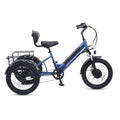

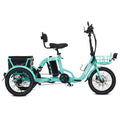

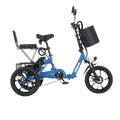






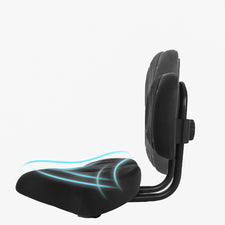





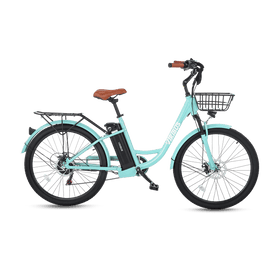
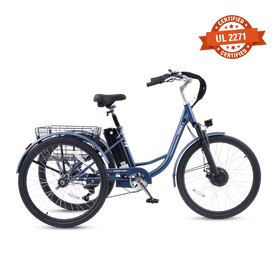
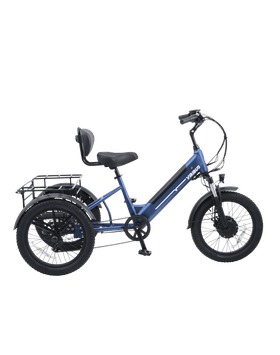



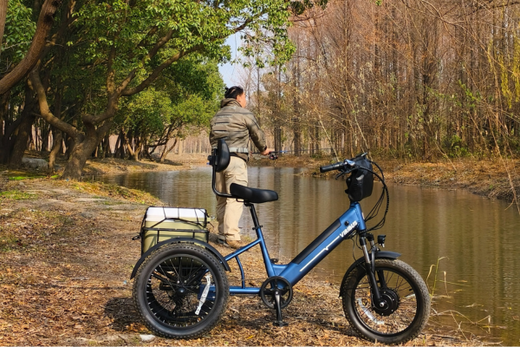
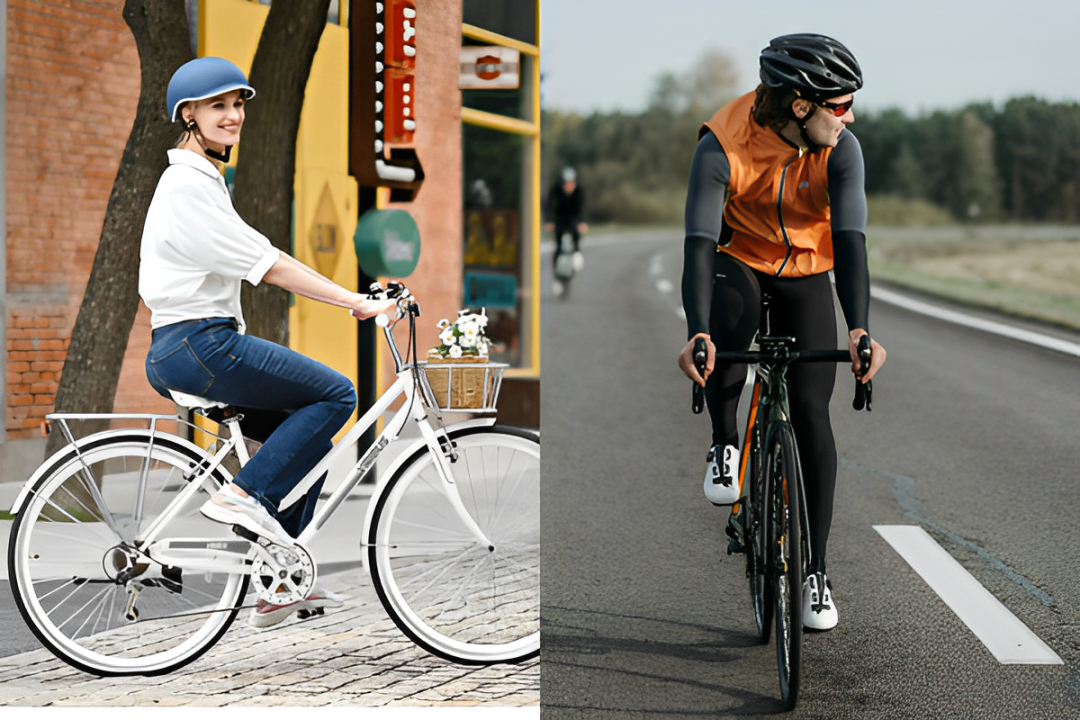
Leave a comment
All comments are moderated before being published.
This site is protected by hCaptcha and the hCaptcha Privacy Policy and Terms of Service apply.